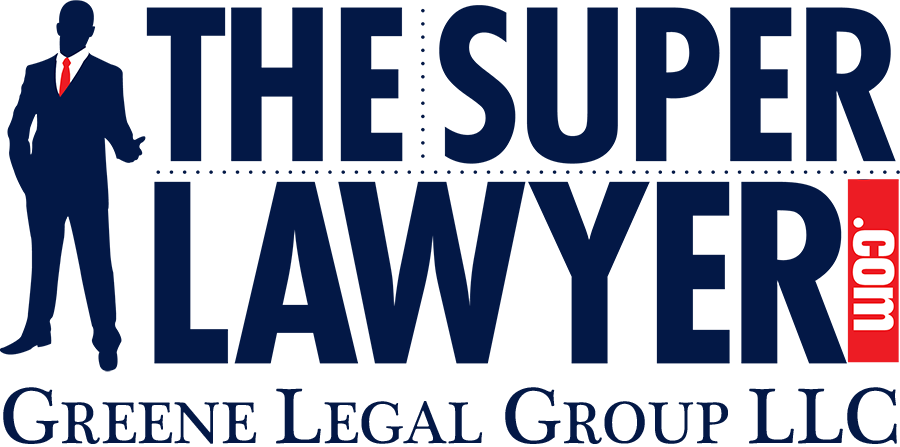Notifying Your Insurance Company
When you suffer a personal injury, the first step is to notify your insurance company. This is crucial for starting the claims process. Prompt notification helps you avoid any potential issues, such as delays or denial of your claim. Here’s how to effectively notify your insurer.
Gather Necessary Information
Before contacting your insurance company, collect all relevant information about the incident. This includes:
- Date and time of the incident.
- Location where it occurred.
- Details of any other parties involved, including their insurance information.
- Witnesses who can support your claim.
- Medical records and bills related to your injury.
Having this information handy will make the notification process smoother and more efficient.

Contact Your Insurance Company
Reach out to your insurance company as soon as possible. You can do this via phone or through their online portal. Be prepared to provide the information you gathered. Clearly explain the circumstances of the incident and your injuries.
Be Honest and Accurate
When discussing the details of the incident, be truthful and precise. Inaccurate information can lead to complications or even denial of your claim. Avoid speculation or assumptions about fault. Stick to the facts as you know them.
Follow Up
After your initial notification, follow up with your insurance company to confirm they received your report. This can help you stay informed about the status of your claim and any further steps required. Keep a record of all communications, including dates, times, and the names of representatives you spoke with.
Understand Your Policy
Familiarize yourself with your insurance policy. Knowing your coverage limits and the specifics of your personal injury insurance can empower you during the claims process. This knowledge will also help you understand what compensation you may be entitled to.
By properly notifying your insurance company, you set the stage for a smoother claims process. This proactive step is vital for maximizing your insurance claims and ensuring that you receive the compensation you deserve for your injuries.
Documenting the Incident

When it comes to filing a personal injury claim, proper documentation is crucial. Collecting and organizing evidence can significantly impact your case. It’s essential to create a detailed record of the incident that led to your injury. This documentation will serve as the foundation for your claim and help in negotiating with insurers.
Gather Evidence
Start by gathering all relevant evidence from the scene of the incident. Take photographs of any damages, injuries, and the surrounding area. If possible, collect contact information from witnesses who can support your account of what happened. Their testimonies can strengthen your case and provide additional credibility when dealing with insurance companies.
Keep Detailed Records
Maintain a journal documenting your injuries, treatments, and any impact on your daily life. Include notes about medical appointments, medications, and physical therapy sessions. This record will help demonstrate the extent of your injuries and the associated costs. It can also assist in maximizing your insurance claims by providing a clear picture of your recovery journey.
Obtain Official Reports
If law enforcement or emergency services were involved, obtain copies of any official reports. These documents, such as police reports or accident reports, can provide an unbiased account of the incident. They are often critical when negotiating with insurers, as they lend authority to your claim.
Document Communication
Keep a log of all communication with your insurance company and any other parties involved. Note dates, times, and the content of conversations. This record is essential for tracking your claim’s progress and can be helpful if disputes arise later. It also helps ensure that you stay organized and informed throughout the insurance settlement process.
By thoroughly documenting the incident, you create a solid foundation for your personal injury claim. This preparation not only aids in negotiations with insurers but also empowers you to advocate for your rights as a victim.
Dealing with Insurance Adjusters

When dealing with insurance adjusters, it’s crucial to approach the situation with a clear strategy. These professionals work for the insurance company, and their primary goal is to minimize payouts. Understanding their tactics can help you navigate these discussions effectively.
Be Prepared
Before talking to an insurance adjuster, gather all relevant information about your personal injury claim. This includes medical records, accident reports, and any correspondence with your insurance company. Having this documentation ready can help you present a strong case and support your claims for damages.
Stay Calm and Professional
Insurance adjusters may employ various tactics to pressure you into accepting a low settlement. Remain calm and professional during your interactions. Avoid getting emotional or confrontational. Stick to the facts and don’t let them rush you into a decision.
Know Your Rights
As a victim, you have rights when it comes to your personal injury claim. Familiarize yourself with victim insurance rights in your state. This knowledge will empower you during discussions and help you advocate for the compensation you deserve.
Ask Questions
Don’t hesitate to ask the adjuster questions about the claims process. Understanding how they evaluate claims can provide insight into their decision-making. Inquire about the factors they consider and how they determine the value of your claim. This can help you gauge whether their offers are fair.
Document Everything
Keep a detailed record of all conversations with the insurance adjuster. Note the date, time, and what was discussed. This documentation can be invaluable if disputes arise later in the claims process. It can also serve as evidence if you need to escalate the matter or seek legal help.
Consider Getting Legal Help
If negotiations become challenging or if the adjuster offers a settlement that seems too low, consider seeking assistance from a personal injury lawyer. Legal professionals have experience in negotiating with insurers and can help maximize your insurance claims. They can also guide you through the complexities of the insurance settlement process, ensuring your rights are protected.
By following these tips, you can better navigate discussions with insurance adjusters and work towards a resolution that reflects the true value of your personal injury claim.
Understanding the Insurance Process
Dealing with insurance companies can be overwhelming for personal injury victims. Understanding the insurance process is crucial to navigating your claim effectively. Here’s what you need to know.
Claims Filing
The first step in the insurance process is filing a claim. After notifying your insurance company about the incident, you’ll need to provide details about what happened. This includes the date, time, location, and a description of the events leading up to the accident. Be prepared to share any relevant documents, such as police reports or medical records. This information is vital for the insurance company to assess your claim.
Investigation
Once you file a claim, the insurance company will conduct an investigation. This may involve reviewing your documentation, speaking with witnesses, and examining the scene of the accident. The goal is to determine liability and evaluate the extent of your injuries. During this stage, it’s important to remain patient, as investigations can take time.
Determining Coverage
After the investigation, the insurance company will determine whether your claim is covered under the policy. They will assess the details of the incident and your policy terms to decide if compensation is warranted. If your claim is valid, they will calculate the amount of compensation you may receive based on medical expenses, lost wages, and other damages.
Communication with Insurers
Throughout the process, communication with the insurer is key. Be ready to answer questions and provide additional information if requested. Keep a record of all correspondence, including dates, times, and the names of representatives you speak with. This documentation can be helpful if disputes arise later.
Claim Denials and Appeals
Sometimes, insurance companies may deny claims or offer lower settlements than expected. If this happens, don’t lose hope. You have the right to appeal the decision. Review the reasons for denial, gather additional evidence if necessary, and submit a formal appeal. Understanding your rights as a claimant is essential in this process.
Seeking Professional Help
Given the intricacies of the insurance process, many personal injury victims benefit from seeking legal representation. A personal injury lawyer can provide valuable advice on navigating the claims process, negotiating with insurers, and ensuring your rights are protected. Having an experienced advocate on your side can make a significant difference in the outcome of your claim.
Seeking Legal Representation

When dealing with personal injury claims, having a qualified lawyer can make a significant difference in your case. A personal injury lawyer brings valuable expertise to the table, helping you navigate the intricacies of the insurance settlement process. They understand the ins and outs of insurance companies and can provide essential advice on how to approach your claim.
Importance of Legal Expertise
A personal injury lawyer specializes in negotiating with insurers and understands the tactics that insurance companies often use to minimize payouts. They can assess your case and determine the best strategy for maximizing your insurance claims. With their knowledge, they can help you avoid common pitfalls that could jeopardize your compensation.
Initial Consultation
Most personal injury lawyers offer a free initial consultation. This meeting allows you to discuss the details of your case and understand your rights as a victim. During this consultation, your lawyer will evaluate the strengths and weaknesses of your claim, providing you with a clearer picture of what to expect moving forward.
Building Your Case
Once you decide to hire a lawyer, they will begin gathering evidence to support your claim. This may include collecting medical records, accident reports, and witness statements. A skilled lawyer knows how to build a strong case that can withstand scrutiny from insurance adjusters.
Representation During Negotiations
Your lawyer will represent you during negotiations with the insurance company. They will advocate for your best interests, ensuring that any settlement offer reflects the full extent of your damages. Having a lawyer by your side can help you feel more confident during these discussions, as they will handle all communication with the insurer.
Contingency Fees
Many personal injury lawyers work on a contingency fee basis, meaning they only get paid if you win your case. This arrangement allows victims to seek legal help without the burden of upfront costs. You can focus on your recovery while your lawyer works to secure the compensation you deserve.
In summary, seeking legal representation is a crucial step for personal injury victims. A knowledgeable lawyer can effectively navigate the insurance process, negotiate settlements, and build a strong case on your behalf. This support can ultimately lead to a more favorable outcome for your claim.
Negotiating Settlements
When it comes to personal injury claims, negotiating settlements is a critical step in the process. This is often where victims can maximize their insurance claims and secure fair compensation for their injuries. Here are some essential tips to help you navigate this phase effectively.
Know Your Worth
Before entering negotiations, it’s vital to have a clear understanding of your case’s value. Consider all aspects of your injury, including medical expenses, lost wages, and pain and suffering. Gathering documentation, such as medical records and bills, can help substantiate your claim. The more evidence you have, the stronger your position will be during negotiations.
Start with a Strong Initial Offer
When you begin negotiations, it’s advisable to start with a figure higher than what you expect to receive. This gives you room to negotiate down while still aiming for a satisfactory settlement. Remember, insurance companies often start with low offers, hoping to minimize their payout. By presenting a strong initial offer, you set the stage for a more favorable negotiation process.
Be Prepared for Counteroffers
Expect that the insurance company will respond with a counteroffer. This is a normal part of the negotiation process. Be prepared to evaluate their offer critically. Consider whether it meets your needs and if it reflects the true extent of your damages. If it falls short, don’t hesitate to counter with a reasonable amount based on your research and documentation.
Stay Professional and Calm
Negotiating with insurance adjusters can be challenging, but maintaining a calm and professional demeanor is essential. Avoid emotional responses, as these can undermine your position. Instead, focus on presenting facts and supporting evidence. A professional approach can help foster a more productive dialogue and lead to a better outcome.
Know When to Walk Away
Sometimes, negotiations may not yield the desired results. If the insurance company remains unwilling to offer a fair settlement, it may be time to consider other options. Knowing when to walk away can be a powerful tool in negotiations. This doesn’t mean giving up; rather, it indicates that you are serious about getting the compensation you deserve. If negotiations stall, seeking legal representation can provide you with additional support and options.
By following these tips, personal injury victims can navigate the negotiation process more effectively, increasing their chances of achieving a favorable settlement. Remember, you have rights as a claimant, and understanding the negotiation landscape can empower you to advocate for yourself.
Communicating Effectively
Effective communication is crucial when dealing with insurance companies during a personal injury claim. Clear and concise exchanges can significantly influence the outcome of your case. Here are some essential tips to help you communicate effectively with insurers.
Be Prepared
Before reaching out to your insurance company or the other party’s insurer, gather all relevant information. This includes your policy details, incident reports, medical records, and any witness statements. Having these documents at hand will enable you to provide accurate information and answer questions confidently.
Stay Professional
Approach every conversation with professionalism. Insurance representatives may be trained to handle claims efficiently, but maintaining a calm demeanor will help you communicate your points effectively. Avoid emotional responses, as they can cloud your judgment and potentially harm your case.
Keep Records
Document all interactions with insurance companies. Note the date, time, and names of the representatives you speak with, along with the content of your discussions. This record can be invaluable if disputes arise later in the process.
Ask Questions
Don’t hesitate to ask questions if you don’t understand something. Whether it’s about the insurance settlement process or specific terms in your policy, seeking clarification shows that you are engaged and informed. This can also prevent misunderstandings that might complicate your claim.
Limit Information
While it’s important to provide necessary details, be cautious about sharing too much. Stick to the facts of the incident and avoid speculation. Insurance adjusters may use your words against you, so it’s best to keep your statements straightforward and focused on the relevant facts.
Follow Up
If you haven’t heard back from the insurer after your initial communication, don’t hesitate to follow up. A polite inquiry can demonstrate your commitment to resolving the claim and may prompt the insurer to act more swiftly.
By following these tips, you can enhance your communication with insurance companies, making it easier to navigate the claims process and work towards a favorable outcome. Remember, being well-prepared and professional can make a significant difference in how your claim is handled.
Alternative Dispute Resolution
When personal injury victims find themselves at odds with insurance companies, alternative dispute resolution (ADR) methods can provide effective solutions. ADR offers a way to resolve disputes without going to trial, which can be lengthy and costly. Here, we will explore the most common types of ADR and how they can benefit personal injury claims.
Mediation
Mediation involves a neutral third party, known as a mediator, who facilitates discussions between the parties involved. The mediator does not make decisions but helps both sides communicate their perspectives. This process can be particularly beneficial for personal injury victims, as it allows them to express their concerns and negotiate with the insurance company in a more informal setting. Mediation can often lead to a mutually agreeable settlement, saving time and money.
Arbitration
Arbitration is another form of ADR where a neutral third party, called an arbitrator, hears both sides of the dispute and makes a binding decision. Unlike mediation, the arbitrator has the authority to determine the outcome of the case. This method can be quicker than going through the court system and is often less expensive. Personal injury victims may find arbitration appealing, especially if the insurance company is unwilling to negotiate a fair settlement.
Benefits of ADR
Using alternative dispute resolution methods can offer several advantages for personal injury victims:
- Cost-Effective: ADR is generally less expensive than litigation. This is crucial for victims who may already be facing financial strain due to medical bills and lost wages.
- Faster Resolutions: ADR processes tend to be quicker than court trials, allowing victims to receive compensation sooner.
- Control Over the Process: Victims have more control over the outcome in ADR. They can choose the mediator or arbitrator and have a say in the resolution process.
- Less Stressful: The informal nature of ADR can reduce the stress and anxiety often associated with court proceedings.
In conclusion, alternative dispute resolution presents a valuable option for personal injury victims dealing with insurance companies. By exploring mediation and arbitration, victims can effectively address their claims while minimizing costs and stress. If you’re considering ADR, consulting with a personal injury lawyer can help you navigate this process and determine the best approach for your situation.
Considering Litigation
When personal injury victims find themselves at an impasse with insurance companies, considering litigation may become necessary. While many cases settle outside of court, understanding when to pursue legal action is crucial.
Assessing the Situation
Before deciding to move forward with litigation, evaluate the specifics of your case. Consider factors such as the severity of your injuries, the amount of damages incurred, and the willingness of the insurance company to negotiate a fair settlement. If the insurer’s offer does not adequately cover your medical expenses, lost wages, and pain and suffering, it may be time to explore your legal options.
Consulting a Personal Injury Lawyer
Engaging a personal injury lawyer can provide invaluable support during this process. A qualified attorney can analyze your case, help you understand your rights, and advise you on the best course of action. They possess the experience needed to navigate the intricacies of litigation, including filing necessary paperwork and representing you in court if needed.
Preparing for Court
If you decide to proceed with litigation, preparation is key. Gather all relevant documentation, including medical records, accident reports, and any correspondence with the insurance company. This information will be essential in building a strong case. Your attorney will work with you to develop a strategy that highlights the strengths of your claim.
Understanding the Timeline
Litigation can be a lengthy process. It often involves multiple stages, including discovery, pre-trial motions, and possibly a trial. Being patient and staying informed throughout the process will help you manage your expectations. Your lawyer will keep you updated on the progress of your case and what to anticipate at each step.
Weighing the Pros and Cons
Before making a final decision, weigh the benefits and drawbacks of litigation. While it can lead to a more favorable outcome, it also involves time, effort, and potential costs. Consider your circumstances, and consult with your attorney to determine if pursuing litigation aligns with your goals.
In summary, litigation can be a viable option for personal injury victims when negotiations with insurance companies fail. Assess your situation, seek legal representation, and prepare thoroughly to increase your chances of a successful outcome.
Managing Medical Bills and Financial Burden

After a personal injury, managing medical bills and financial obligations can become overwhelming. Understanding your rights and the resources available can help ease this burden.
Understanding Your Medical Expenses
The first step is to gather all medical bills related to your injury. This includes hospital bills, doctor visits, physical therapy, and any ongoing treatment. Keeping detailed records will help you understand the total cost of your medical care. It’s essential to differentiate between expenses that are directly tied to the accident and those that are not, as this can impact your personal injury claim.
Exploring Insurance Coverage
Next, review your personal injury insurance policy. Many policies cover medical expenses related to accidents. Contact your insurance company to inquire about your coverage and any necessary steps to file a claim. This can provide immediate relief from medical costs while your personal injury claim is being processed.
Communicating with Healthcare Providers
Don’t hesitate to communicate with your healthcare providers about your financial situation. Many hospitals and clinics offer payment plans or financial assistance programs for patients struggling to pay their bills. Some providers may even agree to delay payment until your insurance claim is settled.
Keeping Track of Lost Wages
In addition to medical expenses, keep a record of any lost wages due to your injury. If your ability to work has been impacted, this loss should be documented. Your personal injury claim can include compensation for lost income, which is vital for managing your financial situation.
Seeking Legal Advice
If you find yourself overwhelmed by medical bills and the insurance process, seeking legal representation can be beneficial. A personal injury lawyer can help you navigate the complexities of your claim, ensuring that all medical expenses are accounted for and that you receive fair compensation. They can also assist in negotiations with your insurance company, alleviating some of the stress associated with managing your financial burden.
By understanding your medical expenses, exploring your insurance options, and keeping detailed records, you can better manage the financial implications of your personal injury.
Reviewing and Responding to Settlement Offers
After filing your personal injury claim, you may receive a settlement offer from the insurance company. Understanding how to review and respond to these offers is crucial for maximizing your compensation.
Evaluating the Offer
When you receive a settlement offer, take the time to evaluate it carefully. Assess whether the amount covers your medical expenses, lost wages, pain and suffering, and any other damages. Consider your current and future medical needs. If the offer does not adequately address these factors, it may be worth negotiating for a higher amount.
Gathering Evidence
To strengthen your position, gather evidence that supports your claim. This may include medical records, bills, photographs of the incident, and witness statements. Documenting your injuries and how they impact your daily life can also help demonstrate the true extent of your suffering. The more evidence you have, the stronger your case will be when negotiating with the insurance company.
Responding to the Offer
When responding to a settlement offer, be professional and concise. Clearly state your reasons for rejecting the initial offer and provide supporting evidence. You can propose a counteroffer that reflects your assessment of the damages. This shows the insurance company that you are serious about your claim and willing to negotiate.
Seeking Legal Help
If you feel overwhelmed by the process or the offer seems unfair, consider seeking assistance from a personal injury lawyer. They can provide valuable advice on how to approach the negotiation process and help ensure your rights are protected. A knowledgeable attorney can also assist in crafting a compelling response to the settlement offer.
Understanding the Negotiation Process
Negotiating with insurers can be tricky. Be prepared for back-and-forth communication as you and the insurance adjuster discuss the terms. Stay patient and keep your focus on achieving a fair resolution. Remember, the goal is to reach a settlement that adequately compensates you for your injuries and losses.
Finalizing the Settlement
Once both parties agree on a settlement amount, ensure that all terms are clearly documented in writing. Review the settlement agreement carefully before signing. This is a binding contract, so it’s essential to understand what you are agreeing to. If you have any doubts, consult with your attorney before finalizing the settlement.
By following these steps, you can navigate the settlement offer process more effectively and work towards obtaining the compensation you deserve.



